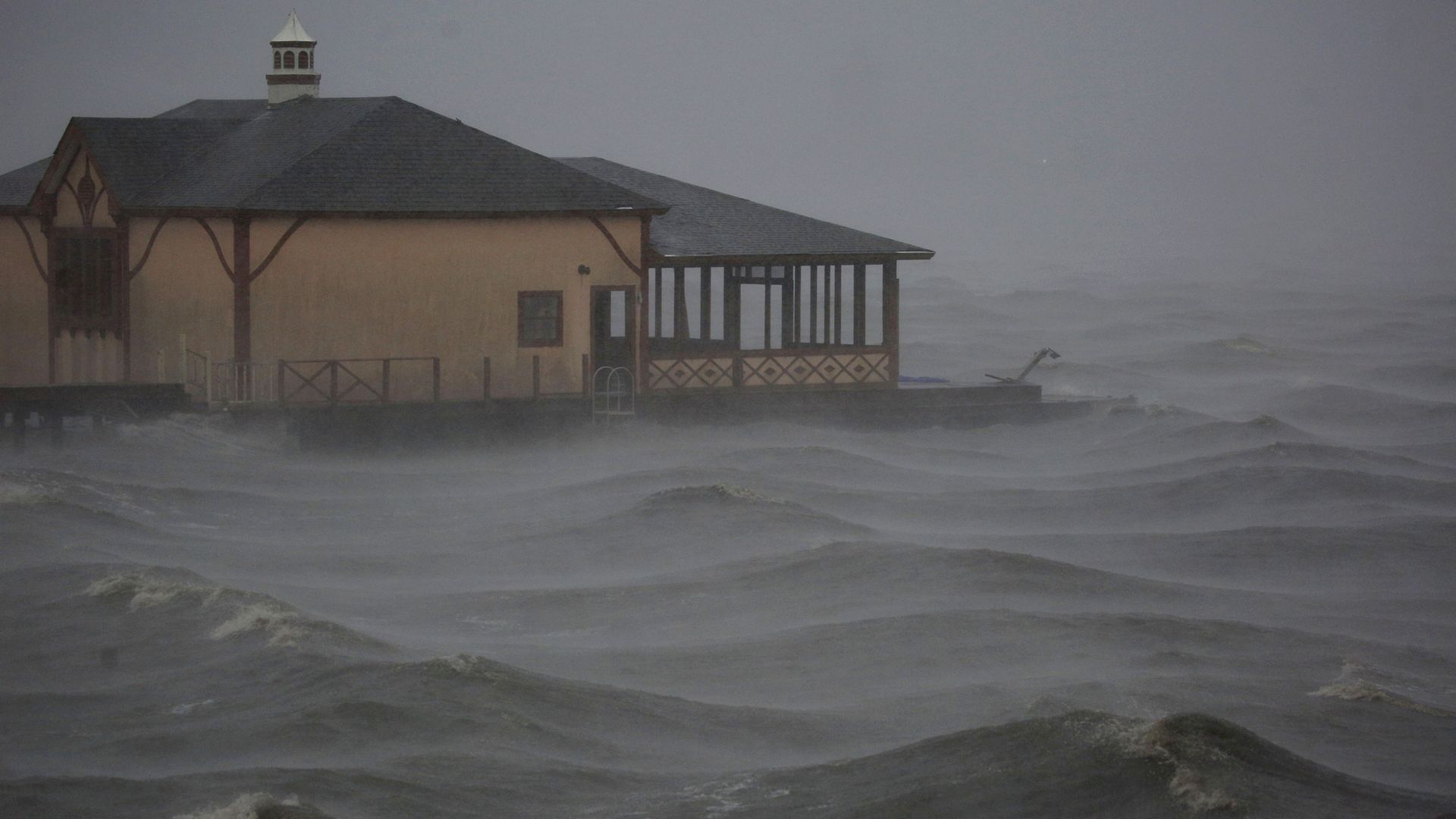Apr 10, 2021 - Science
NOAA expects more storms in an "average" hurricane season
Add Axios as your preferred source to
see more of our stories on Google.

A boathouse in the middle of a storm surge caused by Hurricane Delta making landfall in Lake Charles, Louisiana, on Oct. 9, 2020. Photo: Luke Sharrett/Bloomberg via Getty Images
